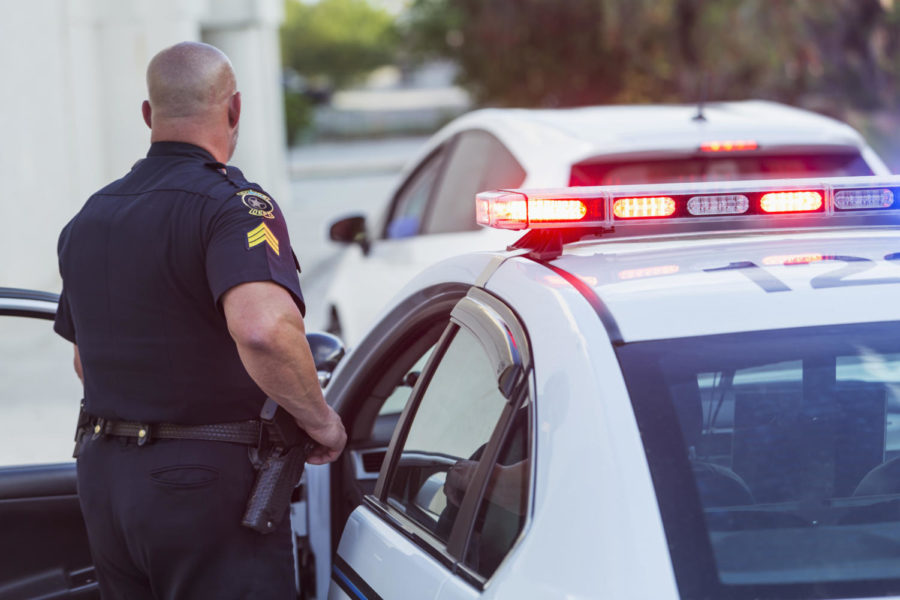Felker: Stop complaining, and pay your speeding tickets
police officer traffic stop
April 27, 2017
Why are we so concerned about which arm of the state is issuing speeding tickets? Judging from public outcry, I would’ve thought the DOT was prowling around Walmart parking-lots keying windshields and stealing hubcaps—not issuing moving violations to individuals breaking the law, endangering the lives of themselves and others. Apparently we’ve accepted that our legal system’s righteous sense of propriety is more important than safety.
These rogue, rascally DOT enforcement officers “must complete a 16-week field-training program and the 14-week basic law enforcement training course at the Iowa Law Enforcement Academy; complete a psychological test; pass a physical agility test; submit to a polygraph examination and background and criminal-history investigation; have no record of felony offenses; and undergo periodic firearms qualification.”
Even so, that they are skulking about our interstates issuing offenders speeding tickets is apparently grounds for public uproar. Meanwhile, the state legislature seeks to spend its time and money “fixing” our apparently rampant voter fraud, the state’s water quality is in the dumps and our public universities continue to battle perennial budget cuts.
And now, we ostensibly ask the legislature to drop what they’re doing so they could pay back 20,000 speeding tickets “wrongfully” issued. I might call this whole unproductive ordeal a surprisingly worthless use of time, but then I would be raising expectations unreasonably high.
Here’s the issue: Picking on massively bureaucratic organizations like the Department of Transportation—for being massively bureaucratic—is valueless commentary. I may just as well write a letter of complaint to the DOT’s administrative headquarters, scan and copy it around three or four thousand times, scatter these leaflets about the premises of the nearest dump and hire a local boy to take video of my doing it. The public will be just as perplexed and angry as they are now, and no one will be the better for it.
The accusation that the state might be “unjustly enriching” itself is absolutely preposterous. These DOT-issued tickets account for less than two million dollars of payments in five years’ time—this is pure pocket change to the state. And even were this the case, what is our criticism? Apparently, it is to shame this dirty government agency for filling the state’s coffers with law-breaker’s money, and then daring to spend it in the maintenance of our public infrastructure. What a rotten thing to do.
If it is now the time to be upset at the DOT for pulling over speeders—as I suppose it apparently is—then why should we not bother to ask why these tickets are being issued in the first place? Might it possibly be because there is a real need for their being issued? An actual safety concern—an actual desire to patrol our freeways and the reality of our traditional law enforcement’s inability or unwillingness to do so to the extent the DOT is interested in?
These seem to be statements accepted by most, as these same critics call for the legislature’s rewriting of the law. If this is the case, then why are we so chagrined by the DOT’s preempting of the law if it will supposedly be imminently accepted formality? I understand that two Iowa judges have ruled the DOT’s ticketing illegal—but would they have done so, and would these cases have even been brought before them were it not for our inexplicably turned public opinion?
The truth is that this is the worst kind of criticism. We’re getting ourselves and others all hot-and-bothered for no real meaningful purpose, and only because the fruit is dangling oh-so-low and looks oh-so-juicy. If you find yourself pulled over for speeding, and become emotionally enflamed at the sight of a “DOT” emblem on the side of your pursuer’s car instead of something else you were looking for, then please go ahead and stay enflamed. But pay your ticket just the same.
















